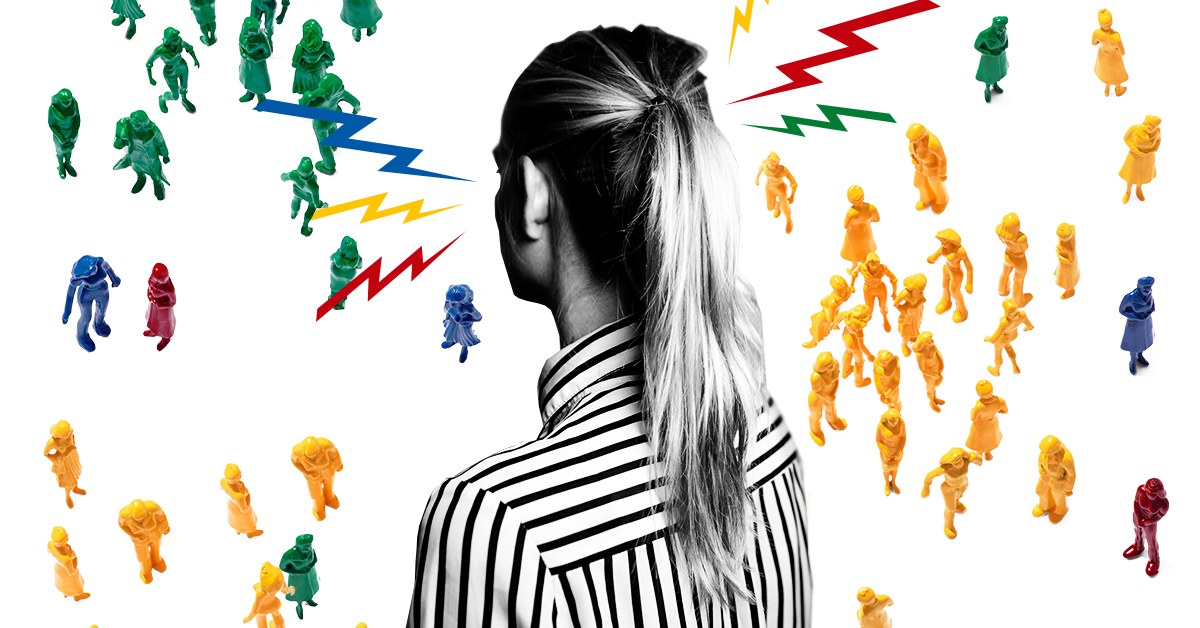Is Your Tribe Helping Or Hurting Your Mental Health?

I spent my twenties going to clubs that had mean bouncers and sports bars where I drank too much beer. I felt aimless and uninspired (and lonely and a little drunk). When I turned 30, I looked around at my drinking buddies and realized I just didn’t belong. As they stared zombielike into their phones, I could tell they weren’t exactly feeling their best either. Maybe we just weren’t meant to be together.
Research has shown that when we’re connected to other people, our health thrives. Brigham Young University researchers found social isolation is as much of a threat to longevity as obesity is, and loneliness is about as risky as alcoholism or smoking 15 cigarettes a day. To me, not having a core group of friends who cared about me and whom I cared about, respected, and felt inspired by was an emotional drain. I wasn’t getting much out of my social group. (I wasn’t giving, either, which turns out to be pretty necessary.) I had to make some changes.
“Feeling a sense of belonging is a fundamental human need,” says William Chopik, Ph.D., assistant professor of psychology at Michigan State University. “Throughout all of human history, social groups are what helped us survive. They give us psychological benefits, like the sense that there are others we can depend on and turn to when we need it. That security translates to all sorts of good outcomes, including higher self-esteem and better relationships. The benefits are seemingly endless.”
Yet we busy ourselves rounding up followers and likes and pretending we’re just fine going it alone, rather than focusing on the depths of our connections. We have more ways to connect with one another than ever (virtually, at least), but somehow we’re still leaving each other hanging. And it’s hurting us. Research at the University of California, Berkeley, found that twenty-somethings report feeling lonely twice as often as people in their fifties and sixties, despite having large social networks. Perhaps worse: We’ve forgotten about the importance of the collective we, as if belonging was just the icing on the cake.
Experts have recognized this. The Mayo Clinic lists friendship as part of an adult’s healthy lifestyle; it reports that friendships can boost happiness and reduce stress, improve self-confidence and self-worth, encourage people to change or avoid unhealthy habits, and help them cope with trauma—from job loss to illness. That sounds pretty crucial to mental well-being.
If you’re feeling lonely or unfulfilled, I challenge you to shake up your social circle and see what else changes.
After my epiphany at the bar, I felt more alone than ever, but also more determined to be intentional about my friendships and what I had to offer a community. I wanted friends who were adventurous, who shared ideas; I wanted to be a better listener and not such a workaholic. So I started being proactive: I went to Burning Man as well as entrepreneurship conferences; I’d meet people and then actually make plans. In time, I cultivated a group where I am truly able to be myself.
The strength and courage that gave me saved my life. So to share that feeling, I started Daybreaker, an early-morning dance party that reimagines the fun of a nightclub as something before work and with green juice, yoga, and hugs—all the wildness and joy, no judgment or hangovers. This tribe has fueled and healed me (and a lot of others; it’s now in 23 cities). Now I serve my community, and they serve me. I give them energy. They give me energy. When I’m feeling down, they pick me up. When they’re feeling down, I pick them up. Happiness, given and received.
I may have built my community around 6:00 A.M. dance parties, but yours could be less extra—maybe it’s two really solid friends. To find those connections, you need to know what you care about and what you have to offer; you have to make yourself vulnerable and communicate. Start with a few simple questions: What do I value in life? What are the qualities I’m looking for in a friend or ones I’d like to avoid? What can I contribute? We do this kind of audit for our careers and our love interests but rarely for our friendships. It takes effort, but the rewards are big.
I didn’t launch a global business by swearing, “I’m good! I’ve got this on my own!” I wasn’t able to envision my personal and professional goals—much less achieve them—until I started seeking out people who are as invested in my whole well-being as I am in theirs. And sure, making friends won’t cure anxiety or depression, but it can help you grow. If you’re feeling lonely or unfulfilled, I challenge you to shake up your social circle and see what else changes.
Today we can get wrapped up in self-care and the notion that to unwind we have to prioritize ourselves over others. There’s nothing wrong with a long run or a sheet mask after a tough day. But there are a lot of forces keeping us alone, especially those shiny little pocket computers we can’t put down. It’s up to us to take a break, look up, and make time for other living, breathing humans. Because the best way to feel happy and whole, I believe, is being in the presence of others.
Radha Agrawal is the cofounder of Daybreaker and Thinx, and author of Belong: Find Your People, Create Community & Live a More Connected Life, out September 2018.
